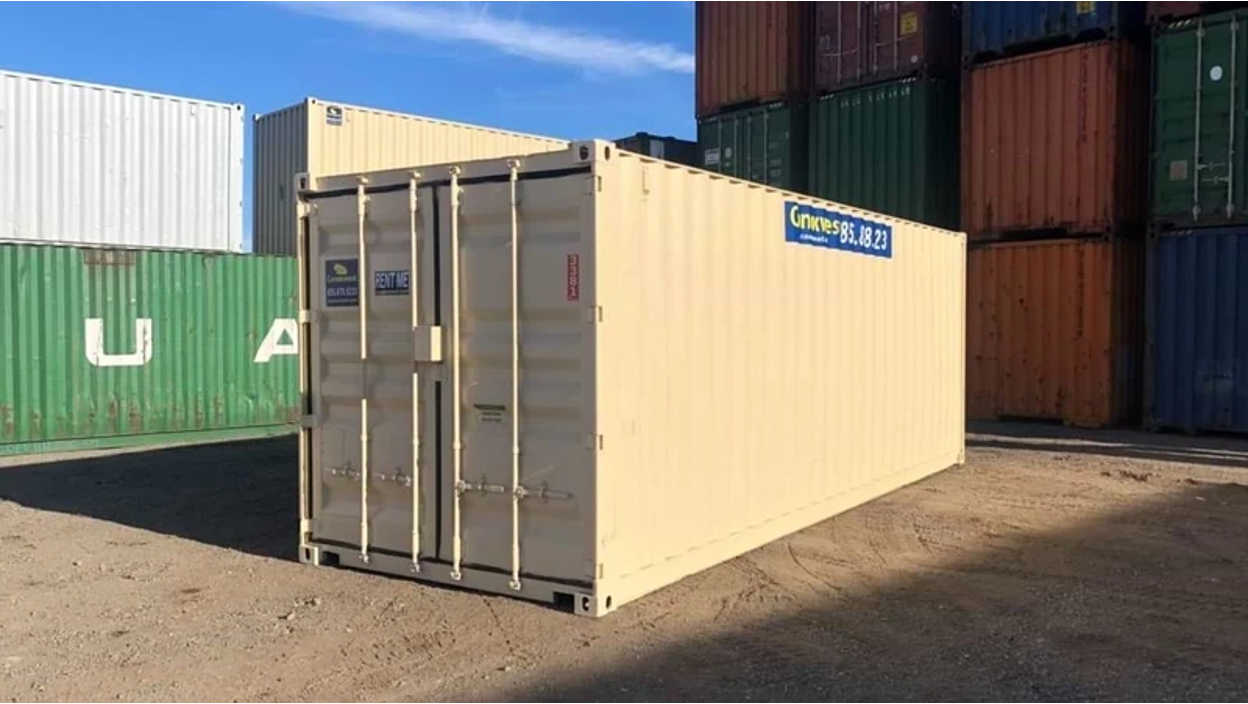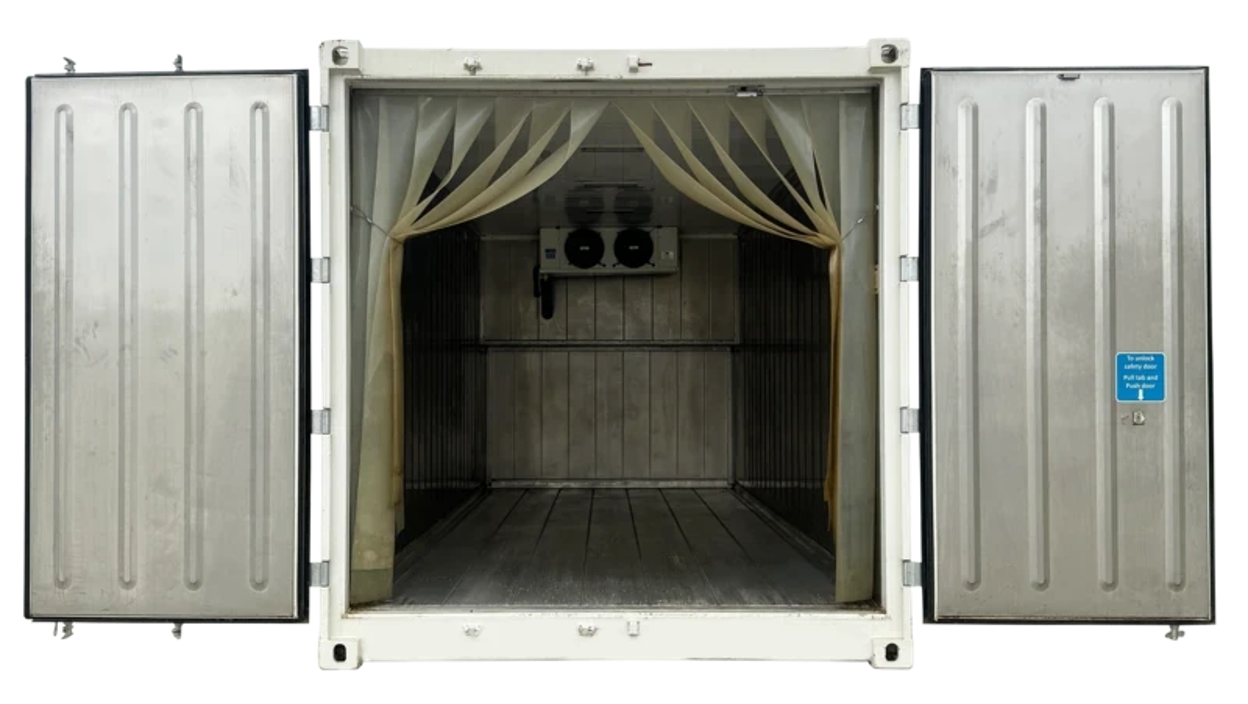Nevada Shipping Container Zoning Laws, Permits & Building Code Requirements
Get a quoteNevada Shipping Container Zoning Law, Permit & Building Code Guide
Key Takeaways
- Shipping containers in Nevada can be used in various zoning categories: residential, commercial, and industrial, each with different regulations.
- Building codes require containers to meet safety and structural standards.
- Non-compliance with zoning laws can result in fines, legal action, or forced removal of the container.
- Conexwest provides expert guidance for complying with Nevada's shipping container regulations along with a vast inventory for purchase or rental.
Shipping Container Zoning Laws, Permits, & Building Code Requirements In Nevada
Zoning Laws
Zoning laws dictate where shipping containers can be placed and for what purposes. Generally, there are three main categories of use:
- Residential Use: Shipping containers can be used as homes or for storage. However, they must comply with local zoning ordinances that restrict their placement based on lot size and neighborhood aesthetics.
- Commercial Use: Containers can be used for businesses, but they must meet stricter regulations regarding visibility, structural integrity, and safety standards.
- Industrial Use: These usually have more lenient regulations, allowing for both temporary and permanent installations.
Permits
Most municipalities require a permit before placing a shipping container on a property. The process involves:
- Application Submission: Applicants must provide detailed plans that include the container's size, location, intended use, and compliance with local zoning laws.
- Inspections: Once the application is approved, inspections may be required during and after installation to ensure compliance with building codes.
Building Codes
Shipping containers must adhere to building codes to maintain safety and structural integrity. Key requirements include:
- Structural Soundness: Containers must be free from hazardous materials (e.g., lead paint or asbestos) and structurally sound to withstand local weather conditions.
- Foundation Requirements: Containers generally need to be placed on a proper foundation, such as concrete slabs or pier footings.
Here are some municipal examples in Nevada
Churchill County
- Container Limitations: Only one shipping container per acre is allowed, with a maximum of two containers per parcel in certain residential districts.
- Condition Maintenance: Containers must be maintained in good condition and cannot be stacked.
Elko County
- Occupancy Regulations: Any building or structure must have a certificate of occupancy issued by the building official before it can be used or occupied. This applies to shipping containers converted for residential or commercial use.
- Permit Fees: Permit fees are set by the Elko County Board of Commissioners and adjusted every two years based on the Consumer Price Index. Additional travel fees may apply depending on the zone where the property is located.
Conexwest, a leader in shipping and storage solutions based in Northern California, offers new, used, and refurbished containers from 10ft to 45ft, with fast delivery within 3-7 days and container fabrication options like adding shelves and locks. We serve over 10,000 customers nationwide, including prestigious clients like the U.S. Navy and Google. As an ISO 9001 and AWS-certified company, we ensure top quality and competitive pricing. |
Tips For Complying With Nevada’s Regulations

Reach out to the experts of Conexwest to get assistance with observing the shipping container rules of Nevada
- Obtain Necessary Permits: Apply for the appropriate permits, including temporary or permanent use permits, depending on how long you plan to keep the container.
- Refer to Building Codes: Review the International Building Code (IBC) and International Residential Code (IRC) for compliance with structural, safety, and aesthetic standards.
- Prepare Detailed Plans: Create comprehensive site plans and construction drawings that outline the intended use, modifications, and placement of the shipping container.
- Check Setback Requirements: Verify local regulations regarding how far the container must be from property lines and other structures.
- Check Structural Integrity: Have an engineer assess the container's structural integrity if it's intended for permanent use or human occupancy.
- Consider Aesthetic Guidelines: Design the container to blend in with the surrounding environment to adhere to any local aesthetic requirements.
- Review Homeowners Association Regulations: If applicable, check with your HOA for additional rules or restrictions regarding shipping containers.
- Document Everything: Keep thorough records of all communications, permits, plans, and inspections related to your shipping container project.
Choose Conexwest For Your Shipping Container Needs

Conexwest’s vast inventory features various types of shipping containers, including standard, high cube, refrigerated, etc.
Conexwest is a leading provider of high-quality shipping containers all over the US. Here are the services provided by us:
- Container Sales: We provide a variety of shipping containers in different conditions - new, used, and refurbished - to suit your budget and requirements.
- Custom Modifications: Our team can modify containers to include features like windows, doors, HVAC systems, and custom paint jobs.
- Container Rentals: We provide flexible rental options for short-term and long-term needs.
- Nationwide Delivery: We take care of timely delivery of your container directly to your location.
Why Choose Conexwest for Your Shipping Container Needs
- Quality Assurance: We prioritize high-quality products with warranties - 10 years for new containers and 5 years for cargo-worthy units.
- Expert Guidance: Our knowledgeable team is here to assist you in complying with Nevada’s regulations for hassle-free use of shipping containers.
- Transparent Pricing: You’ll receive clear and upfront pricing with no hidden fees.
- Customer-Centric Approach: We focus on delivering exceptional service, from the initial inquiry through to post-purchase support.
Frequently Asked Questions (FAQs)
- Are shipping containers allowed in residential areas in Nevada?
Shipping containers are generally allowed in residential areas in Nevada, but they must comply with local zoning laws and building codes. Moreover, containers used for residential purposes must be converted into livable spaces that meet IRC standards.
- What should I consider before placing a shipping container on my property?
- Size and Space: Your property should accommodate the container without violating setback requirements.
- Local Regulations: Check with your municipality for zoning laws and building codes.
- Condition of the Container: Check if it is structurally sound and weather-resistant.
- Duration of Use: Determine if you need a temporary or permanent permit based on how long you plan to keep the container.
- Can I use a shipping container for storage without permits?
Using a shipping container for storage may require fewer permits than using it as a home, but you still need to check local ordinances. Many municipalities require at least a temporary use permit for storage containers, especially if they exceed certain dimensions or are intended for long-term use.
- What are the common pitfalls when applying for permits?
- Insufficient Research: Not complying with local zoning laws or building codes can lead to application denials.
- Incomplete Plans: Submitting vague or incomplete plans can delay the approval process.
- Ignoring HOA Rules: If your property is within a homeowners' association jurisdiction, you may face additional restrictions that could impact your project.
- What is the delivery process of Conexwest like?
We deliver containers within 3-7 days of your order. Our team will coordinate with you for a smooth delivery process, confirming details such as site access and preferred delivery times.
